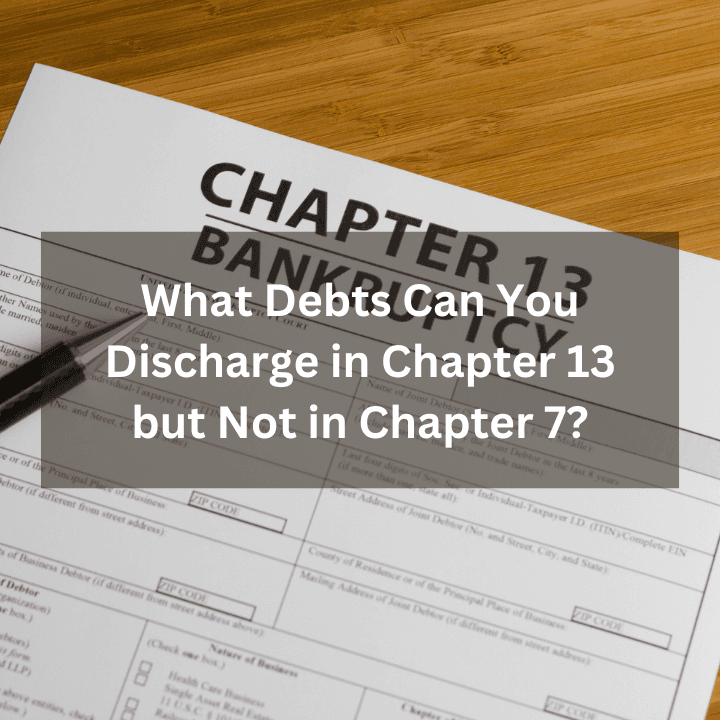
People with unmanageable debt loads often turn to bankruptcy for relief. Most of them proceed using either Chapter 7 or Chapter 13 of the bankruptcy code, which set out different paths for discharging the individual’s debt. One notable difference is that Chapter 13 requires partial repayment of outstanding debt. However, an advantage of Chapter 13 is that it allows for discharge of certain types of debts that cannot be discharged under Chapter 7.
A Chapter 7 bankruptcy is the fastest and simplest type of consumer bankruptcy. A case usually takes three to six months and typically results in full discharge of unsecured consumer debts, such as outstanding medical expenses, credit card balances and loans without collateral.
Although a Chapter 13 bankruptcy takes longer and is more complicated, there often reasons why it is a better path than Chapter 7. One of the main benefits is the ability to save one’s home or other assets from foreclosure. People having a home mortgage or car loan that has not been paid for months can repay the past due amounts in small increments over years. So long as the debtor makes the payments ordered by the court and continues to pay the loan going forward, they can keep the asset.
A debtor having few assets and a large amount of unsecured debt might still be better off filing under Chapter 13 due to the fact that some debts can be discharged, in whole or in part, in Chapter 13 but not at all in Chapter 7.
These are among the debts for which Chapter 13 allows a discharge at the end of the repayment plan:
- Certain governmental fines and penalties, such as a debt originating with violations of securities laws or with misconduct against a bank insured by the federal government
- Compensation owed for damaging or destroying another’s property, even if the debtor’s actions were willful
- Portions of secured loans that have been stripped or crammed down, which become reclassified as unsecured loans
- Debts incurred to pay nondischargeable taxes, such as by using a credit card
- Certain debts arising from divorce or separation settlements
There are other types of debt that can be discharged in Chapter 13 but not Chapter 7. There are also limitations to discharging these debts. It is important that you provide your bankruptcy attorney with a complete and accurate list of debts and other relevant financial information. This will help your lawyer counsel you on the best resolution of your debt problems.
Jeff Field & Associates is a bankruptcy and debt relief firm with six offices in the Atlanta, Marietta and Athens areas of Georgia. If you are struggling with debt, contact us online or call 404-381-1278 for a free initial consultation.
Please fill out the form below and one of our attorneys will contact you.





